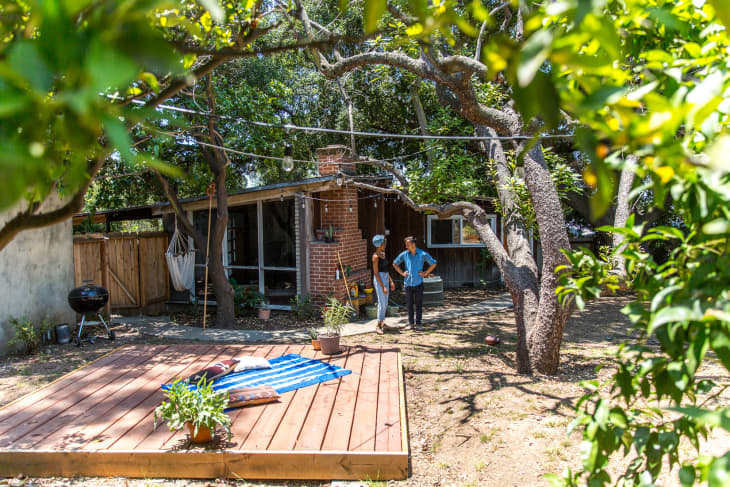The Ultimate Guide for Deciding if You Should Do a Project Yourself or Hire a Pro

Are you facing your first-ever home repair or maintenance project and not sure how to begin (or keep going after that)? Make your way through our starter pack. This content was created independently by our editorial team and generously underwritten by the Toyota Corolla Cross.
The Instagram vs. Reality meme is too real: Many home projects look way easier than they are. New to the DIY home repair scene? Before you end up covered in grout or tangled in a roll of wiring, take a moment to ask, “Should I DIY, or should I hire?” and carefully weigh both options. To make the decision extra easy, check out the handy flowchart below.
As Goodell David, founder of WoodWorking Clarity, explains, “DIY may cost you less, but it does take up your time. From a financial standpoint, you need to ask yourself how much value is doing this myself going to add?”
Of course, you also need to think about the specific repair. “Anything that requires infrastructure repair, whether it’s electrical, plumbing, or HVAC, or if it’s something that pertains to the building envelope, such as roofing, replacing a window, or other things that keep the elements out, go straight to a professional,” says Eugene Colberg, principal at Colberg Architecture. He explains that often you don’t know what you don’t know, and an architect, contractor, or engineer may be required to properly plan for a project. The risk of doing it yourself, only to cause significant damage, is too great — and may cost you more money in the long run.
Other times, the decision to DIY or hire a professional could come down to paperwork and permits. When projects require permits, it could be best to bring in the pros, especially if you ever plan on selling your home. While permitting depends on your local laws, projects that may require permits include adding or replacing windows and doors, making major electrical changes, building additional structures, digging out or expanding a basement, and even renovating kitchens and bathrooms, particularly when gas or plumbing lines are involved.
One other consideration: When you DIY, there’s always the risk that the finished repair may not look professional. If you want to sell your home sometime soon or fix something that you hope will subsequently last decades — for example, replacing broken tile flooring — you may also want to contemplate hiring a pro. “If a project costs a few hundred dollars from a professional but will add thousands to the value of your home, get a pro!” says David. “Even if you can do the project yourself, it is worth the investment.”
Wondering, then, when DIY is a good call? “Projects that can be easily DIY’d include replacing the air filter in your HVAC system, clearing a minor sink clog, or updating paint,” says Raj Midha, SVP and general manager of American Home Shield. As for anything in the woodworking and carpentry world, David advises that beginners stick to the surface — meaning painting, applying wood finish, or potentially renovating cabinets. “As long as you don’t have to break or cut deep into the structure of the building, you can do it yourself,” he says.
